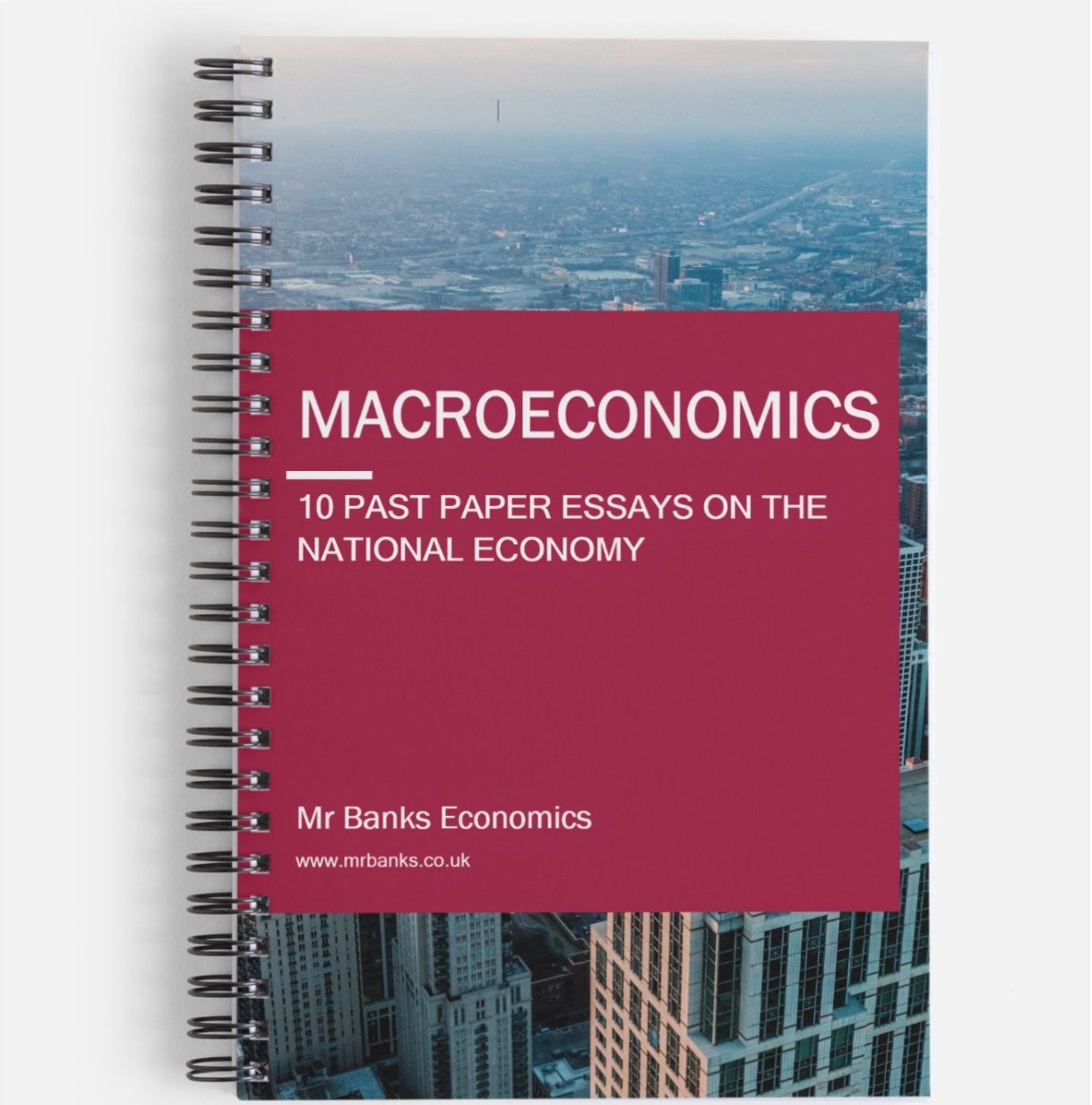A-Level Economics Model Answers
“Assess the importance of both demand-side and supply-side policies in helping the UK economy to achieve a prolonged period of economic growth. (25 marks)”
Here is a question and answer from the national economy section of the A-level Economics syllabus.
This question is an ‘assess’ question - the type of question where students have to write a long essay. This question shows the examiner that your knowledge of economics and your ability to apply it to an economic problem.
You have to ensure that when you answer these questions you included good depth and evaluation skills: otherwise, you’ll lose marks.
THE FREE ESSAY PLAN BELOW CAN BE USED AS A GUIDE TO HELP YOU WRITE YOUR RESPONSE.
Assess the importance of both demand-side and supply-side policies in helping the UK economy to achieve a prolonged period of economic growth. (25 marks)
The question asks you to judge how important demand/supply-side policies are in helping an economy (the UK) to achieve sustained economic growth. You’ll need to think about the structure. There are many ways you could structure this.
Here is an example of how you could approach this question.
Remember to insert your diagram!
FREE Model Answer Guide - Information in extract below
Possible Definitions
Demand-side policy
A demand-side policy is a macroeconomic policy which is aimed at changing the level of aggregate demand (defined by consumption + investment + government spending + net exports).
Supply-side policy
A supply-side policy is a macroeconomic policy which is aimed at increasing an economy’s productive potential, thus boosting its level of aggregate supply.
Prolonged economic growth
A ‘prolonged period of economic growth’ is assumed to mean a period of time where the economy does not fluctuate so much with little to no volatility in the economic cycle. Thus, we are referring to an economy without a pronounced boom/bust cycle.
Importance of demand-side policy
Explain how monetary policy might be used and why it is effective
Explain why monetary policy might not be effective
Explain how fiscal policy might be used and why it is effective
Explain why fiscal policy might not be effective
Importance of supply-side policy
Explain what supply-side policy is and provide some examples
Explain how supply-side policy might be beneficial in achieving sustainable economic growth
Explain the downsides of supply-side policy when trying to achieve sustainable economic growth
Remember to weigh up how important you think these policies are for the UK when trying to achieve a sustainable level of economic growth!
Diagrams you could use
AD/AS
PPF
Extract information
1.
With the economy in recession and unemployment rising, politicians and economists are trying to find ways of stimulating economic growth. From one year to the next, the crucial factor affecting growth is spending. If people spend more, firms will sell more and this will encourage firms to produce more. Lower bank lending, rising unemployment and a lack of confidence have contributed to lower aggregate demand and led to a negative actual rate of economic growth in the UK. However, the answer to increasing the long-run trend rate of economic growth is not simply one of increasing spending. If aggregate demand persistently exceeds the capacity of the economy to produce goods and services, we will end up with high inflation and a growing balance of payments deficit. In the short run, the economy will experience a boom but this is likely to be followed by a prolonged recession. If growth is to be sustained, improvements in the supply-side performance of the economy are essential. Investment and other developments that lead to higher productivity help to increase the productive capacity of the economy. In the long run, economic growth is stimulated by improvements in technology and an environment in which economic incentives provide encouragement to entrepreneurs and workers.
2.
Britain’s economy shrank by a further 0.7 % in the second quarter of 2009 but it is widely expected that it should start to recover by the end of the year. The large degree of spare capacity should keep inflation low. It means that firms will find it more difficult to raise prices and may even decide to cut prices. They will also resist increases in costs. This is significant because monetary policy will need to remain loose for a long time in order to support recovery. Nevertheless, the recession and financial crisis will probably reduce the growth of productive capacity because some firms will go out of business, the number of new firms being formed will fall and investment in physical capital will decline. A period of recession is often accompanied by firms reducing their spending on training and cutting back on research and development. In addition, individuals who are unemployed for significant periods may view their chances of finding work as being low and therefore drop out of the labour market. This also reduces the potential output of the economy.
Source: news reportsWant the full model answer?
10 Past Papers with Model Answers on the National Economy
Written by an experienced Economics tutor
Full model answers with diagrams
Designed for A-level Economics students studying AQA or Edexcel syllabus
Physical booklet
£30.00
All orders will be delivered within 7 days.


